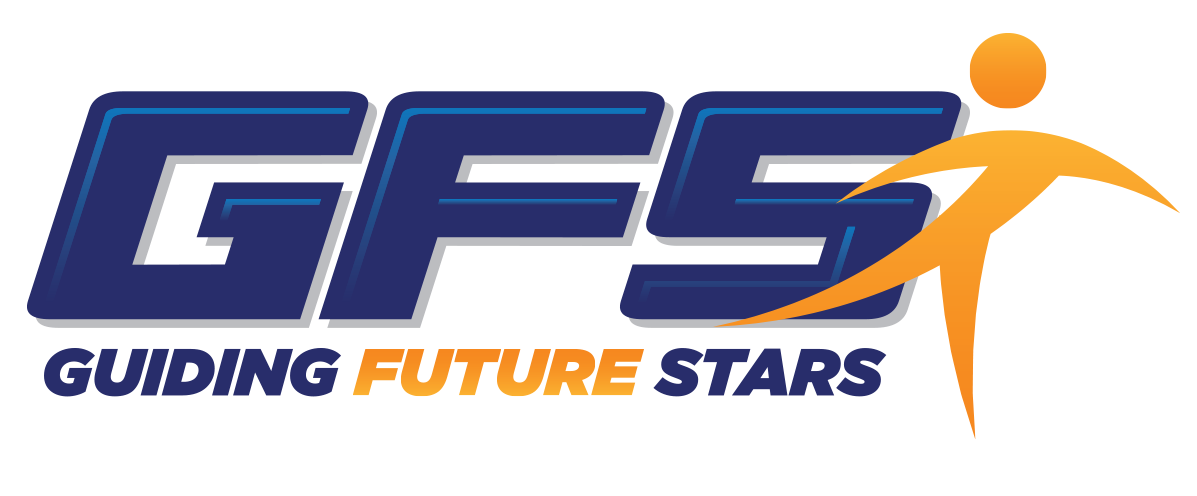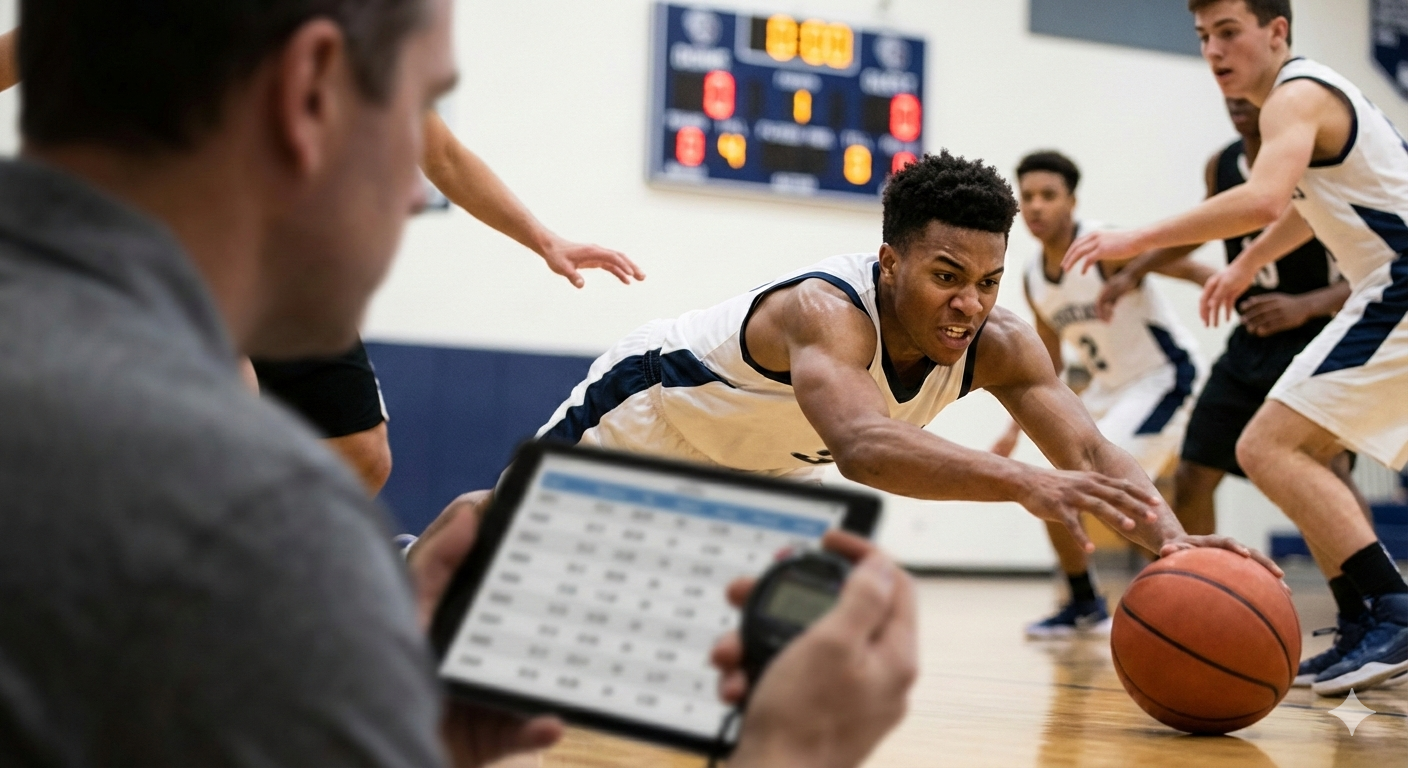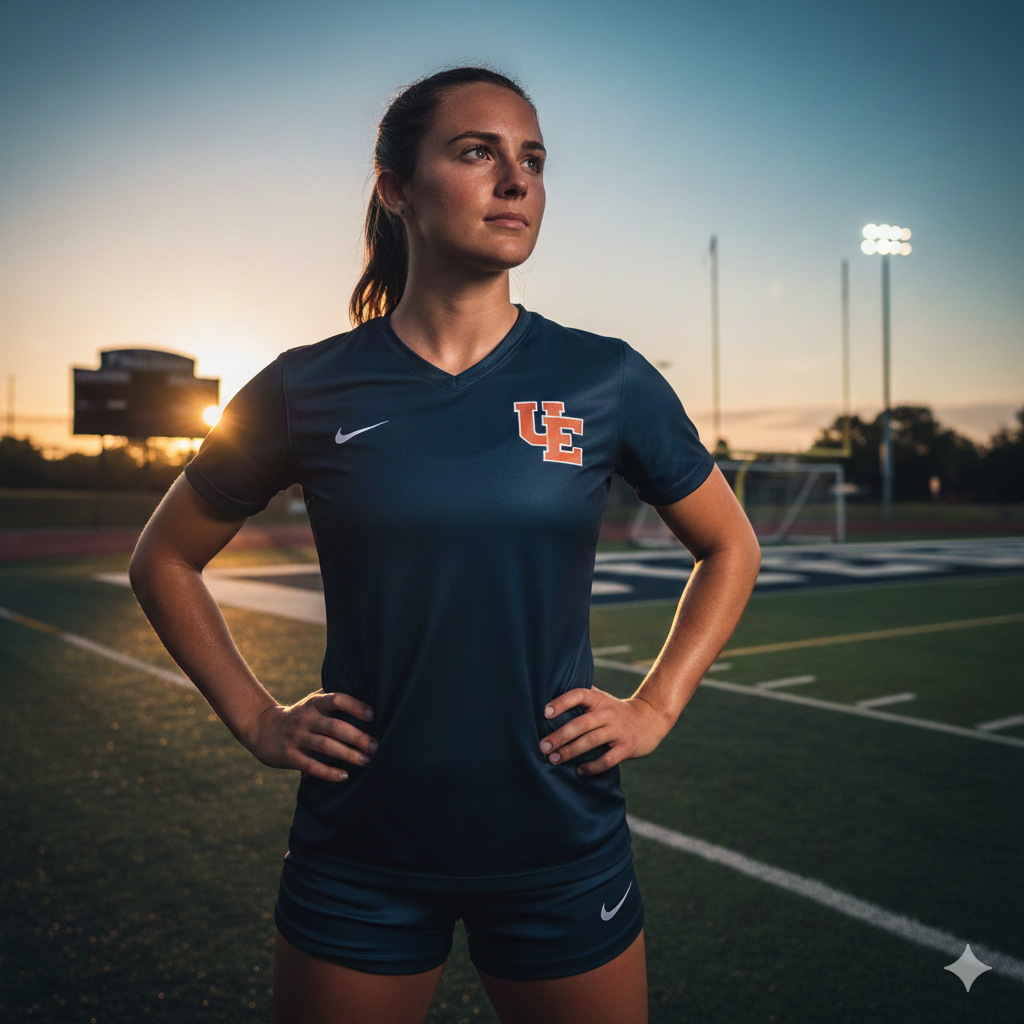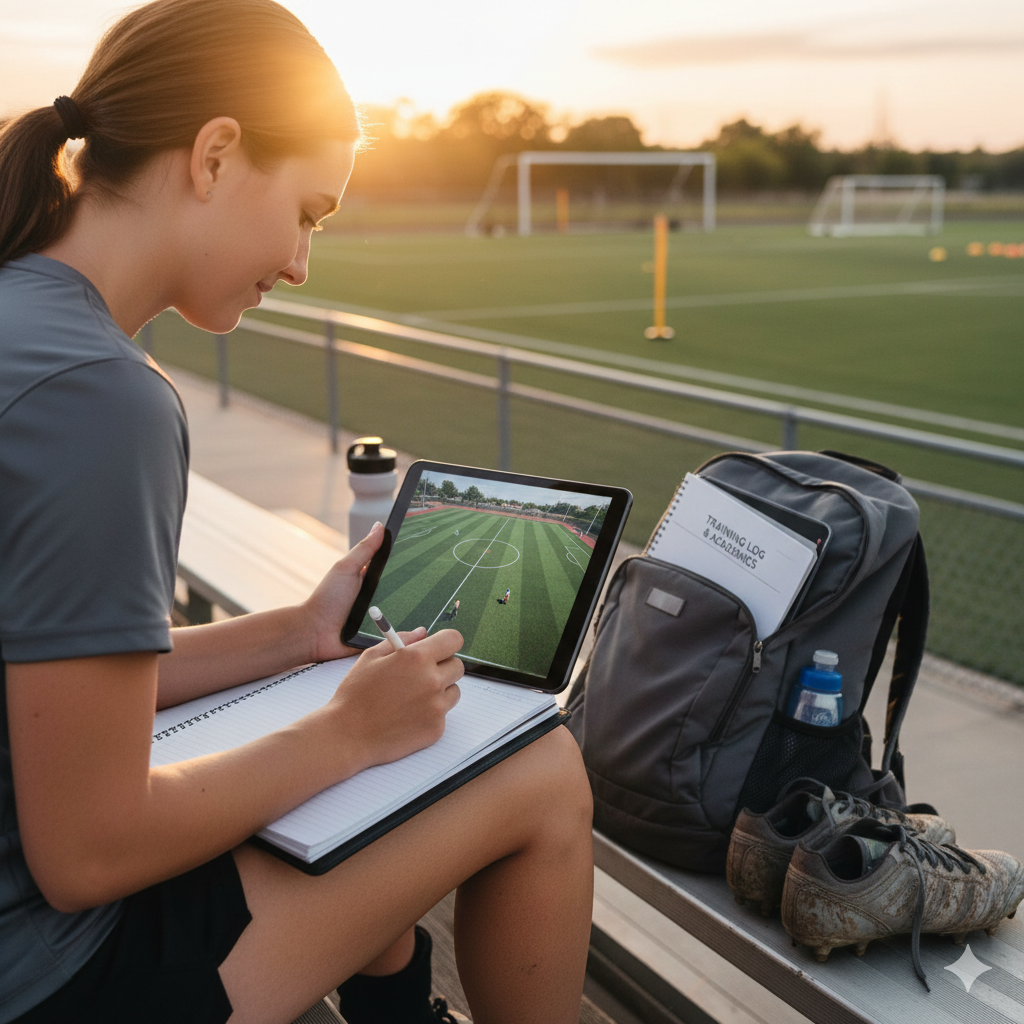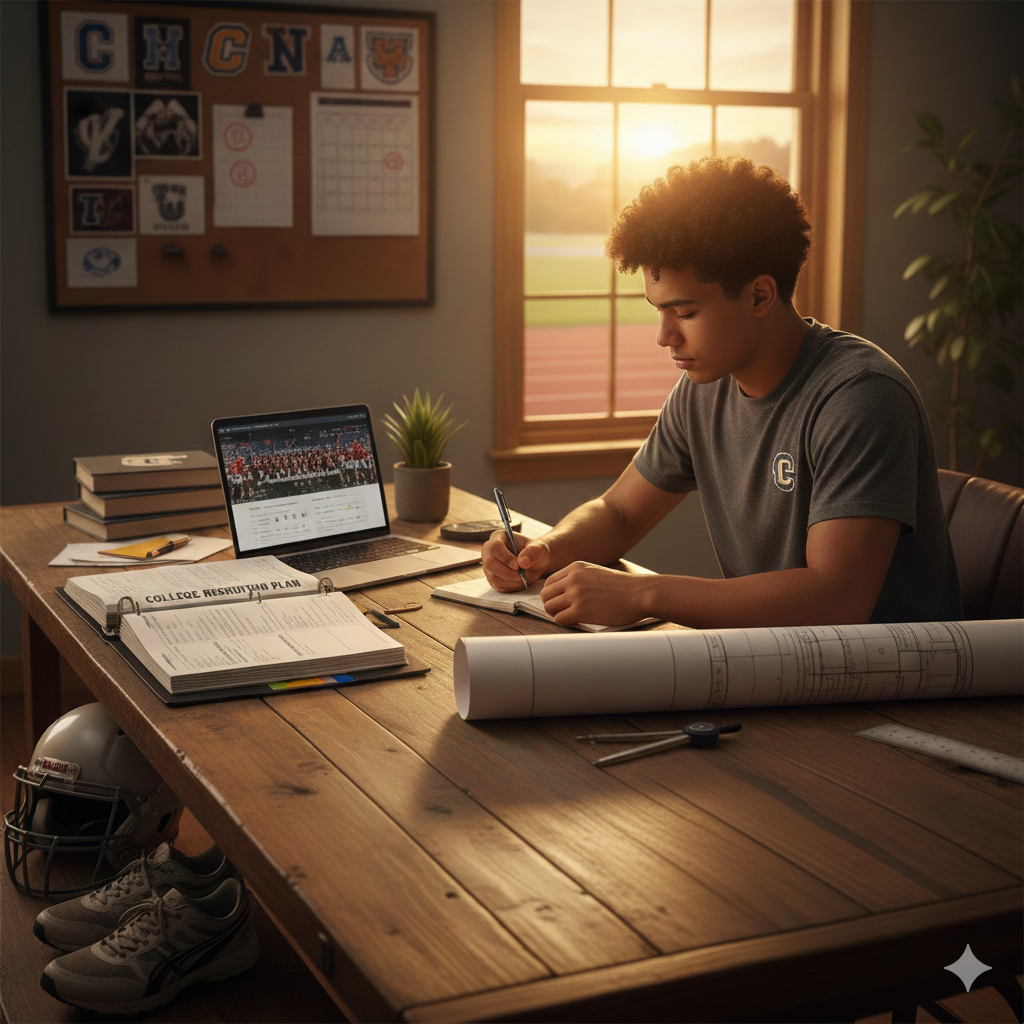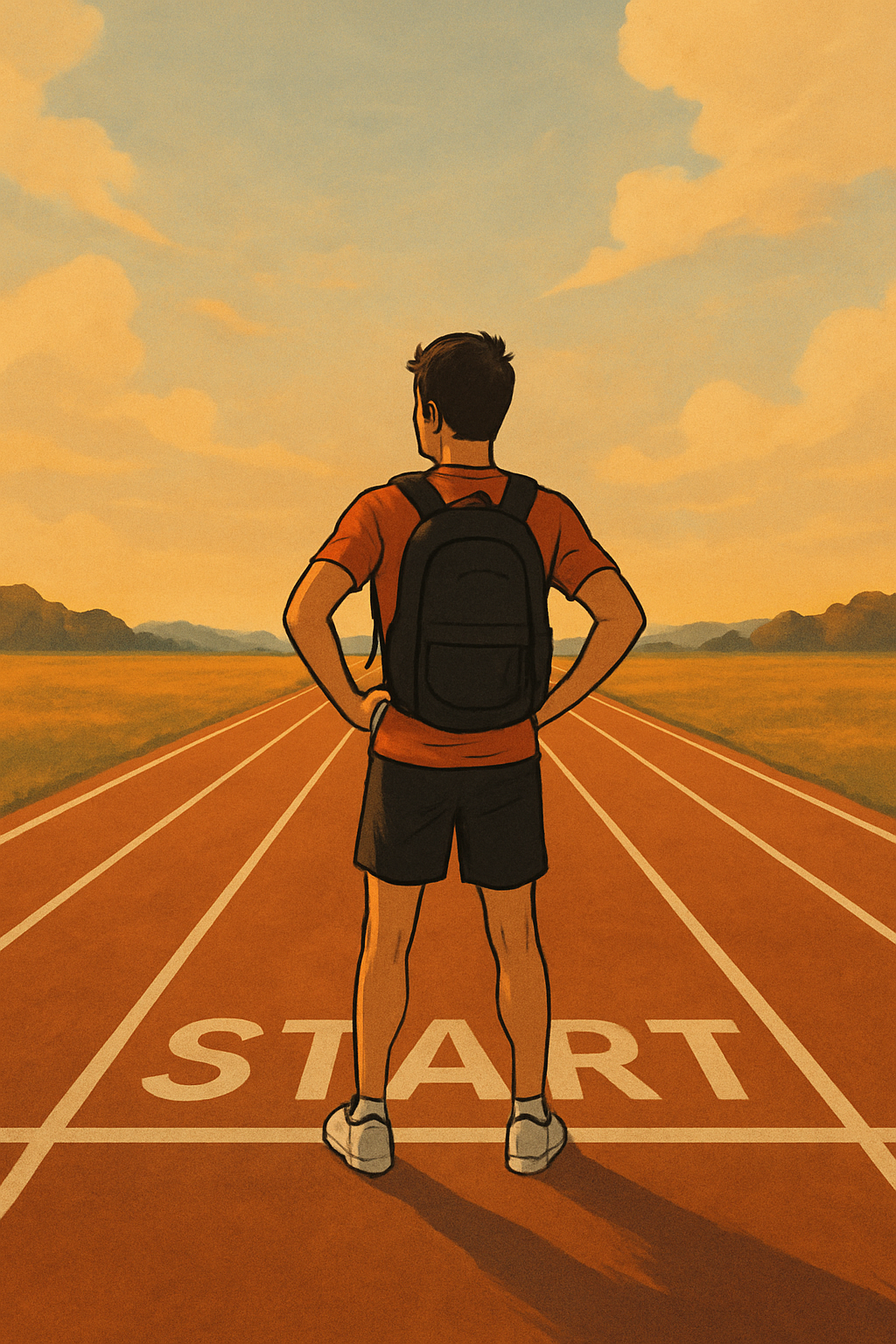7 Habits of Highly Recruitable Student-Athletes
This is a subtitle for your new post
Do you want to continue your academic and athletic career in college? Do you think you have what it takes to be a college student-athlete?
Playing in college goes well beyond your athletic abilities. Do you rest on your talents or are you willing to put in the time, effort, and energy to be the best you possibly can? Would you consider yourself lazy? Do you prioritize your academics? What kind of character do you have? Being recruited is about being a well-rounded individual. Taking the words from Shaquille O’Neal who borrowed them from Aristotle, “Excellence is not a singular act but a habit. You are what you repeatedly do.”
Leaving athletic abilities and skills aside, what are the habits of a highly recruitable student-athlete? Stephen Covey, the world renown author developed the 7 Habits of Highly Effective People, I have created my own 7 Habits of Highly Recruitable Student-Athletes:
Habit #1: Identify Goals
We also call this habit “Discovering Your Why.” This is very similar to Stephen Covey’s habit, “Begin with the End in Mind.”
Before you start the college recruiting/college search process, you need to establish your motives and goals not only for playing college sports but attending college in general.
What do you want to get out of your college experience, academically, athletically, and personally? Your answers to these questions will define your why. By developing this foundation you will have a much clearer picture of what you are looking for and how to find it.
Habit #2: Self-Confidence
Being a college student-athlete, you need to be confident in who you are as a student, an athlete, and a person. If playing your sport is important to you, then there is place out there for you. No matter what level you think you are capable of playing at, possessing self-confidence is an important habit. You need to be able to express to a college coach what value you can provide to their program both on and off the field. The only way you can do that is be confident in who you are. Having self-confidence mixed in with a little self-awareness will take you a long way through the college recruiting process.
Habit #3: Prioritize Your Preferences
What is important to you? When looking for schools that fit your academic, athletic, and personal needs, you need to figure what factors are most important to you in your college search. Mount St. Mary’s Head Men’s Basketball Coach, Jamion Christian, says that every recruit should write down five things that are important to them in their college experience and stick to the game plan when navigating through the process. Here are some of the factors you need to consider:
- Location (Distance from home, part of the country, climate)
- Size
- Academic Programs
- Athletic Program
- Level of Play
- Playing Time
- Program Success
Habit #4: Understand the Process
What do you know about the recruiting process? It’s important to have a grasp of how the process works:
- What are the differences between the various levels of play (DI, DII, DIII, and NAIA)?
- What do you know about athletic scholarships?
- When can you contact a college coach?
- When can a college coach contact you?
- How to use Social Media to enhance your personal brand?
- What are the best ways to communicate with college coaches?
- How do coaches identify and evaluate prospective student-athletes?
- Having the answers to these questions will help you navigate through the communication and exposure phase successfully.
Habit #5: Be Proactive
Nobody will accomplish anything by sitting on the sidelines and watching. If you want something bad enough, you have to take action. The recruiting process is no different. If you are part of the other 98% of high school student-athletes who are not being courted by a big time Division I school, program, or coach you need to do the work to be recruited. Practicing the previous four habits are useless if you aren’t willing to put yourself out there and be proactive. Being Proactive refers to more than the recruiting process but how you approach things in your life. In school, are you willing to go the extra mile to get a better grade on that final exam? Will you spend extra time on the court working on that 20 foot jumper, or more time in the pool to work on that flip turn?
You cannot sit idly by and expect you will just magically improve those skills, and in the recruiting process, you cannot wait for college coaches to discover you.
You need to contact college coaches directly via email, phone, or even social media. In order to be evaluated by a college coach you need to attend college showcase events or college ID camps/clinics. Being proactive is the habit of implementing and executing action items to achieve specific goals.
Habit #6: Appreciate the Journey
The opportunity to go through the college recruiting process is the pinnacle of all of the time, effort, energy, and commitment you have made to your sport. It is important that you not only enjoy the experience but appreciate the journey and where you are going.
There have been many people who have supported you over the years and have helped you get to this point in your life make sure you appreciate what they have done for you.
The coaches who have helped you refine your craft, the teammates you have played alongside, and of course your parents who have sacrificed so much for you to achieve your goals.
You should be grateful for the opportunity you have been given. Never take anything for granted. Be thankful for every letter, email, text, social media message you receive from a college coach. There is no better feeling than being wanted and loved by a college coach no matter what division it may be.
Coach Christian says, ” go to the place where you are not only loved but wanted and needed. I’ve seen it too many times where student-athletes choose a school where they don’t really want to go but do because of the level. Happiness cannot be measured if you have a burning desire to play. ”
You need to keep the big picture in mind, playing college sports is an opportunity to play a sport you love while building an educational foundation for your future.
Habit #7: Refine Your Craft
Don’t ever be content on where you are with your overall development as a student, an athlete, and as a person.
Refining your craft means more than just working on your game, it means preserving and enhancing the greatest asset you have–you.
In order to be the best version of yourself by the time you step on campus for the first time, you need to create a balanced program for self development in all aspects your life: physical, social, mental, and spiritual.
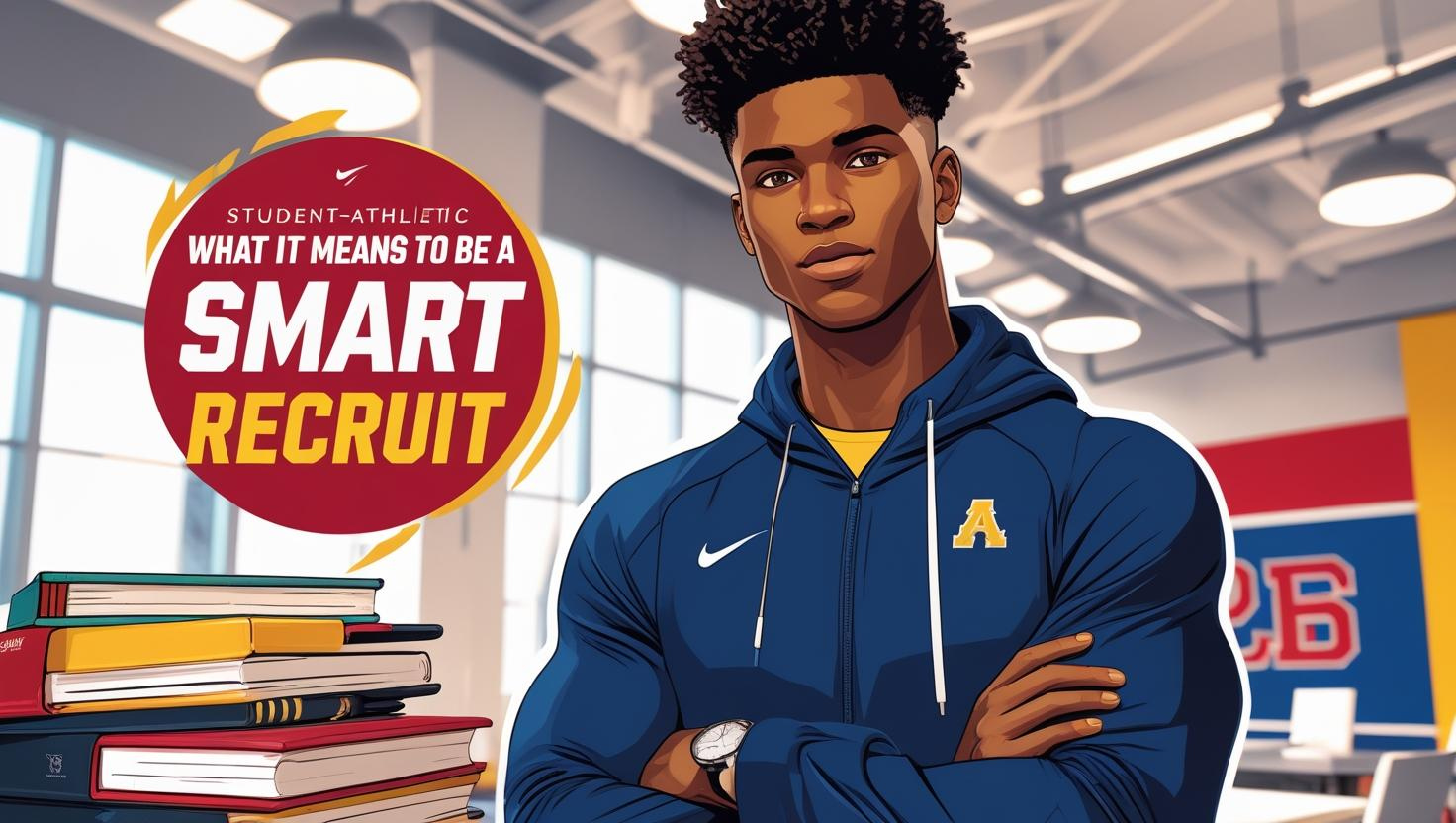
💡 What It Means to Be a SMART Recruit If you're a high school student-athlete with dreams of playing at the college level, you’ve probably heard how competitive and confusing the recruiting process can be. It’s true—navigating the world of college athletics, eligibility rules, academic requirements, communication with coaches, and scholarship opportunities can feel overwhelming. But here’s the good news: you don’t have to go through it blindly. Being a SMART Recruit means more than just athletic talent. It means you’re Educated , Empowered , Engaged , and Inspired . You take ownership of your journey by staying informed , organized , and committed to your future—both on and off the field. Let’s break it down. 🎓 Educated: Know the Landscape Smart Recruits take the time to understand the recruiting process. They know the rules, eligibility requirements, timelines, and what college coaches are looking for. They research the differences between NCAA Divisions I, II, III, NAIA, and NJCAA, and they understand how academics, athletics, and personal fit all play a role in finding the right school. Knowledge is power. When you're educated, you're able to avoid common mistakes, ask the right questions, and make informed decisions. 💪 Empowered: Own Your Journey Smart Recruits don’t wait for opportunity—they create it. They know that recruiting isn’t something that “just happens” to them. They take control by reaching out to coaches, attending the right events, and building a strong recruiting profile that reflects who they are as a student-athlete and a person. They recognize that no one will work harder for their future than they will . That sense of empowerment fuels their actions and keeps them moving forward—even when the journey gets tough. 🧠 Engaged: Be Proactive and Present The recruiting process is not passive—it requires you to stay active and engaged. Smart Recruits use tools like communication trackers, college lists, and visit checklists to stay on top of their outreach and deadlines. They’re not afraid to follow up, ask questions, and stay consistent. Being engaged means showing up: in your inbox, in the classroom, on the field, and in your mindset. Consistency beats luck every time. 🌟 Inspired: Stay Motivated by Your "Why" Every successful recruiting journey starts with a clear sense of purpose. Smart Recruits know why they’re pursuing college athletics, what they hope to achieve, and who they want to become in the process. That vision fuels their daily habits and decisions. Whether it's waking up early to train, studying late for a test, or rewriting an email to a coach—they’re motivated by a bigger goal and inspired to keep going, even when it’s hard. 🧭 Stay Informed. Stay Organized. Stay Ahead. Being a SMART Recruit also means staying informed about deadlines, program updates, and coach responses—and staying organized enough to manage it all. Whether you're managing communication, video links, or academic transcripts, having a system in place is crucial. That’s why tools like The Smart Recruit Tool Kit exist—to help you streamline the process, stay accountable, and make progress every week. 🎉 Coming Soon: The Smart Recruit Toolkit Get ready to take control of your college recruiting journey! The Smart Recruit —a comprehensive DIY toolkit designed to help student-athletes become educated, empowered, engaged, and inspired—will be launching soon. Packed with worksheets, templates, and expert guidance, this resource is your ultimate playbook to navigate the recruiting process with confidence and clarity. Stay tuned for the official launch! 🔚 Final Thought: Be the Recruit Coaches Want to Coach College coaches are looking for more than just athletic ability. They want students who are driven, self-aware, academically committed, and coachable. When you approach the process like a SMART Recruit , you show coaches you’re ready—not just to play at the next level, but to thrive there. ✅ Educated. ✅ Empowered. ✅ Engaged. ✅ Inspired. ✅ Informed & Organized. That’s what it means to be a SMART Recruit.
